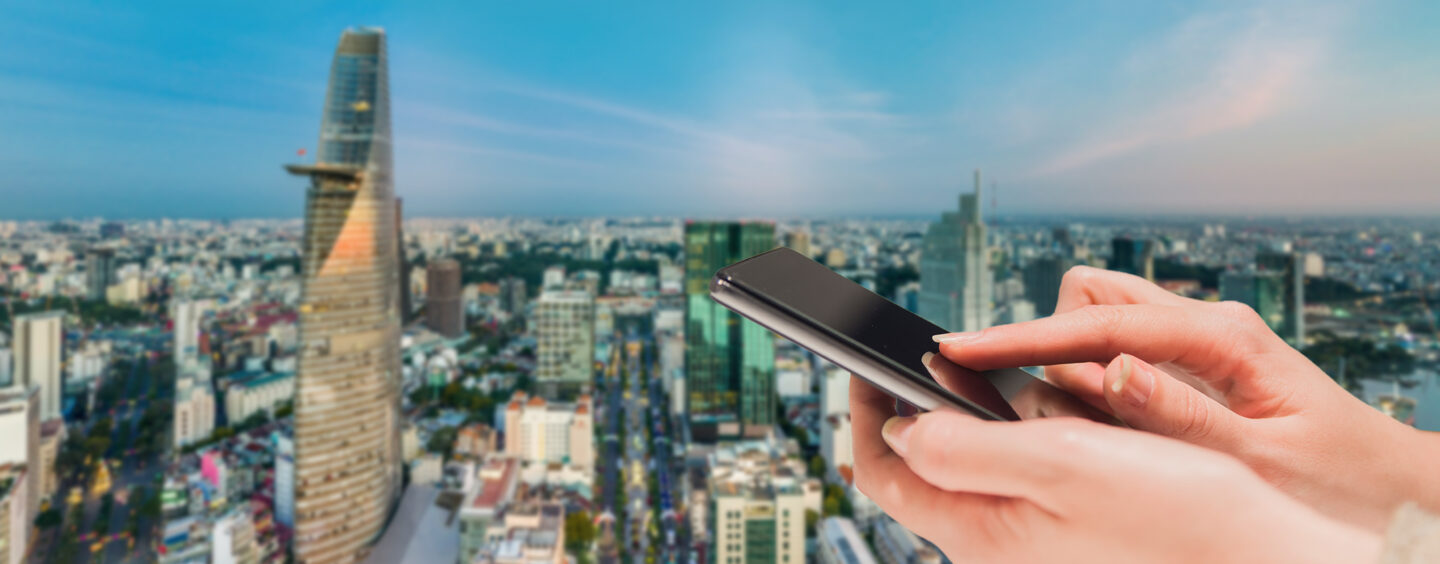
Mobile Transactions in Vietnam Projected to Surge 300% In the Next 5 Years
by Fintech News Vietnam August 2, 2021Between 2021 and 2025, mobile transactions in Vietnam are expected to surge 300% as Vietnam continues to leapfrog into the mobile channel, a new report by IDC and Backbase found.
The second edition of Fintech and Digital Banking 2025 Asia Pacific (APAC) explores the narrative of digital fitness and resilience of the financial services industry for 2025 and beyond, and looks at the major trends to watch out for in key APAC markets including Vietnam, Indonesia, the Philippines and Thailand.
According to the research, incumbent banks in Vietnam have understood the need to place the mobile channel at the center of their digital strategies, and most have put mobile engagement in their growth plans.
Against this backdrop, a number of mobile innovations should emerge out of the Vietnamese market, notably in the areas of payments, gaming, and personalization, the report says.
A separate study released earlier this month by mobile payment specialist Boku estimates that mobile wallet penetration in Vietnam could grow from 19.7% in 2020 to 55.5% in 2025.
This trend will be observed not just in Vietnam but also in Southeast Asia more broadly. The region is projected to be the fastest-growing mobile wallet market, with an estimated growth of 311% in mobile wallet usage between 2020 and 2025, and some 439.7 million mobile wallets across Indonesia, Malaysia, the Philippines, Singapore, Thailand and Vietnam by 2025.
According to the study, the growth of Southeast Asia’s mobile payment sector will be partly driven by the rise in e-commerce and dominance of super-apps like Singapore’s Grab and the GoTo Group, formed in May 2021 by a merger between Gojek and Tokopedia, particularly in markets like the Philippines and Indonesia.
Digital lending, fintech partnerships and other key trends in APAC
Another key trend highlighted in the IDC/Backbase report is Vietnamese banks’ increasing focus on digital lending as demand for credit surges. From 2021 onwards, lending growth in Vietnam will be double-digit every year, the report says. Already, 80% of Vietnamese banks have already re-invested in credit risk and asset-liability management, building on capabilities in lending, it notes.
In Indonesia, big banks are aggressively investing in technology in response to the rise of fintechs and challenger banks, with a particular focus on API-enabled, microservices-based and cloud-native digital technologies. Successful banks will be those that embrace a modular architecture where processes, products and channels can be created and altered as needed, the report says.
In the Philippines, new digital banks will go after untapped opportunities in payments and lending, and more partnerships between banks and fintechs, as well as banks and telcos are expected to emerge. These partnerships will focus on improving distribution and availability of banking offerings, the report says.
In Thailand, the banking sector is projected to see a new wave of digitalization as incumbents compete to have the de facto super-app for banking. This will emerge on the back of a high level openness from consumers to try out and embrace new innovative banking solutions.
The report notes that Thailand has seen record-breaking numbers for growth in digital payments, use of digital identification, and use of social media for banking amid COVID-19. The next area primed for growth will be platform-based banking where banks will have to cooperate with third parties to offer a unique value proposition to customers, the report says.
According to IDC, there will be 100 new digital challenger banks across APAC by 2025 with at least two digital banks in every APAC market that will present a serious challenge to incumbents.
APAC is currently home to 20% of the world’s digital challenger banks, according to a June 2021 report by the Boston Consulting Group (BCG).
Out of these 50 players, only ten have reached profitability. Four are located in China (WeBank, MYbank, Aibank and XW Bank), four are in Japan (Rakuten Bank, Sony Bank, Jibun Bank and PayPay Bank), one is in India (Paytm), and one is in South Korea (KakaoBank).
Featured image: edited from Unsplash and People photo created by Dragana_Gordic – www.freepik.com





